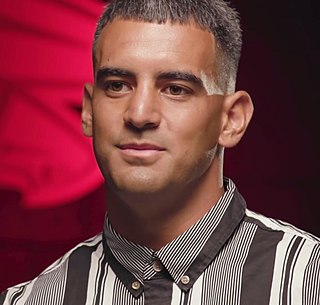A Quote by Joan Bauer
...Difficult relationships come into our lives for a reason. No one would choose them, certainly. But if we let them, they can teach us how to be flexible with others and more forgiving.
Related Quotes
We might not know we are seeking people who best enrich our lives, but somehow on a deep subconscious level we absolutely are. Whether the bond is temporary or permanent, whether it succeeds or fails, fate is simply a configuration of choices that combine with others to shape the relationships that surround us. We cannot choose our family, but we can choose our friends, and we sometimes, before we even meet them.
Every day God patiently bears with us, and every day we are tempted to become impatient with our friends, neighbors, and loved ones. And our faults and failures before God are so much more serious than the petty actions of others that tend to irritate us! God calls us to graciously bear with the weaknesses of others, tolerating them and forgiving them even as He has forgiven us.
All men and women are born, live, suffer and die; what distinguishes us one from another is our dreams, whether they be dreams about worldly or unworldly things, and what we do to make them come about... We do not choose to be born. We do not choose our parents. We do not choose our historical epoch, the country of our birth, or the immediate circumstances of our upbringing. We do not, most of us, choose to die; nor do we choose the time and conditions of our death. But within this realm of choicelessness, we do choose how we live.
We human beings are social beings. We come into the world as the result of others’ actions. We survive here in dependence on others. Whether we like it or not, there is hardly a moment of our lives when we do not benefit from others’ activities. For this reason, it is hardly surprising that most of our happiness arises in the context of our relationships with others.
there are no knights on white horses, no magical grandmothers in the sky watching, waiting to rescue us. Teachers may come our way, but they will not rescue. They will teach. People who care will come, but they will not rescue. They will care. Help will come, but help is not rescuing. We are our own rescuers. Our relationships will improve dramatically when we stop rescuing others and stop expecting them to rescue us.
You cannot teach somebody to write a masterpiece, but you can certainly teach them how to improve their writing skills. And you can teach them that they can make their own voices more effective by being able to communicate more clearly and forcefully. It makes people feel more capable when they can write - for instance to make a request - of a politician - and when they are able to receive a reply.
It's so easy in life for us to receive blessings, many of them almost uncounted, and have things happen in our lives that can help change our lives, improve our lives, and bring the Spirit into our lives. But we sometimes take them for granted. How grateful we should be for the blessings that the gospel of Jesus Christ brings into our hearts and souls. I would remind all of you that if we're ever going to show gratitude properly to our Heavenly Father, we should do it with all of our heart, might, mind, and strength-because it was He who gave us life and breath
As you develop relationships in your team you have to learn how your teammates react to being yelled at or how to put your arm around them and show them how to do things. You have to build those relationships up and understand who that person is and how they respond and choose your way to lead them to hopefully help everyone out.
Before making peace, war is necessary, and that war must be made with our self. Our worst enemy is our self: our faults, our weaknesses, our limitations. And our mind is such a traitor! What does it? It covers our faults even from our own eyes, and points out to us the reason for all our difficulties: others! So it constantly deludes us, keeping us unaware of the real enemy, and pushes us towards those others to fight them, showing them to us as our enemies.
When we ignore the prostituted child, we actually lend our hand to their abuse. When we ignore the widow and the orphan in their distress, we actually add to their pain. When we ignore the slave who remains captive, it's us who is entrapping them. When we forget the refugee, it's actually us who is displacing them. When we choose not to help the poor and the needy, we actually rob them. Perhaps the only fair thing to say is that when we forsake the lives of others, we actually forsake our own.
Several of our children have married outside my faith. Would I prefer they marry within their religion? Yes, because I know that marrying outside the family faith will very likely bring them more problems-but not from me. My job is to accept them and love them, not to criticize them and make their lives more difficult.
I put a lot of emphasis on how to treat people. The reason for this is simple. The real success of our personal lives and careers can best be measured by the relationships we have with the people most dear to us - our family, friends, and coworkers. If we fail in this aspect of our lives, no matter how vast our worldly possessions or how high on the corporate ladder we climb, we will have achieved very little.






































